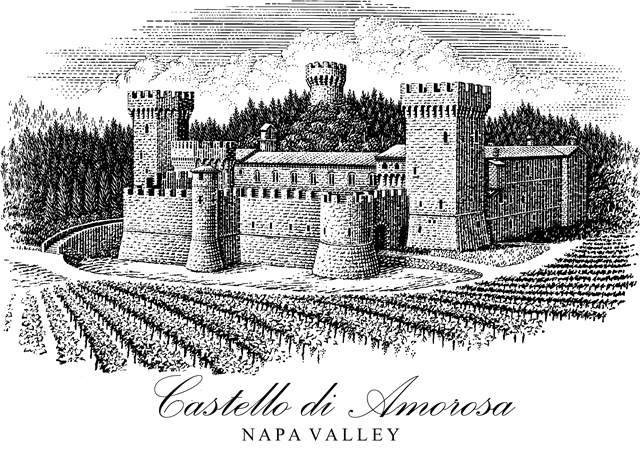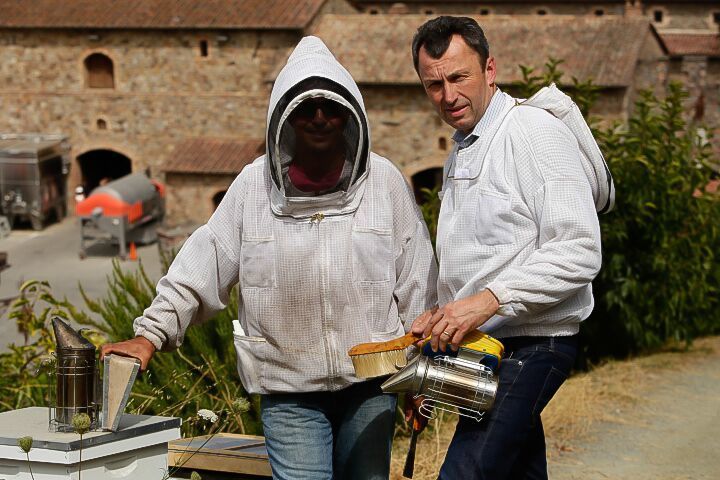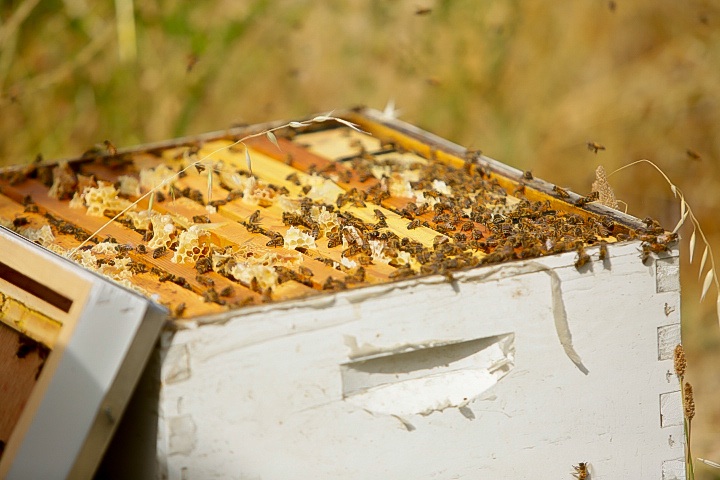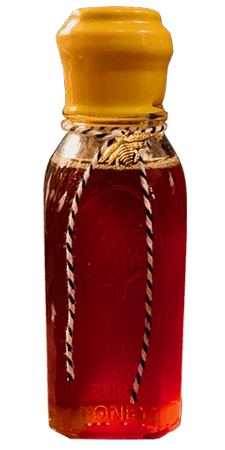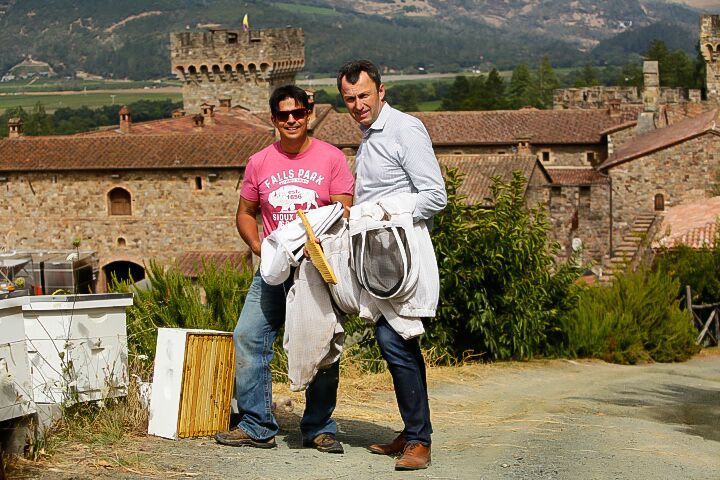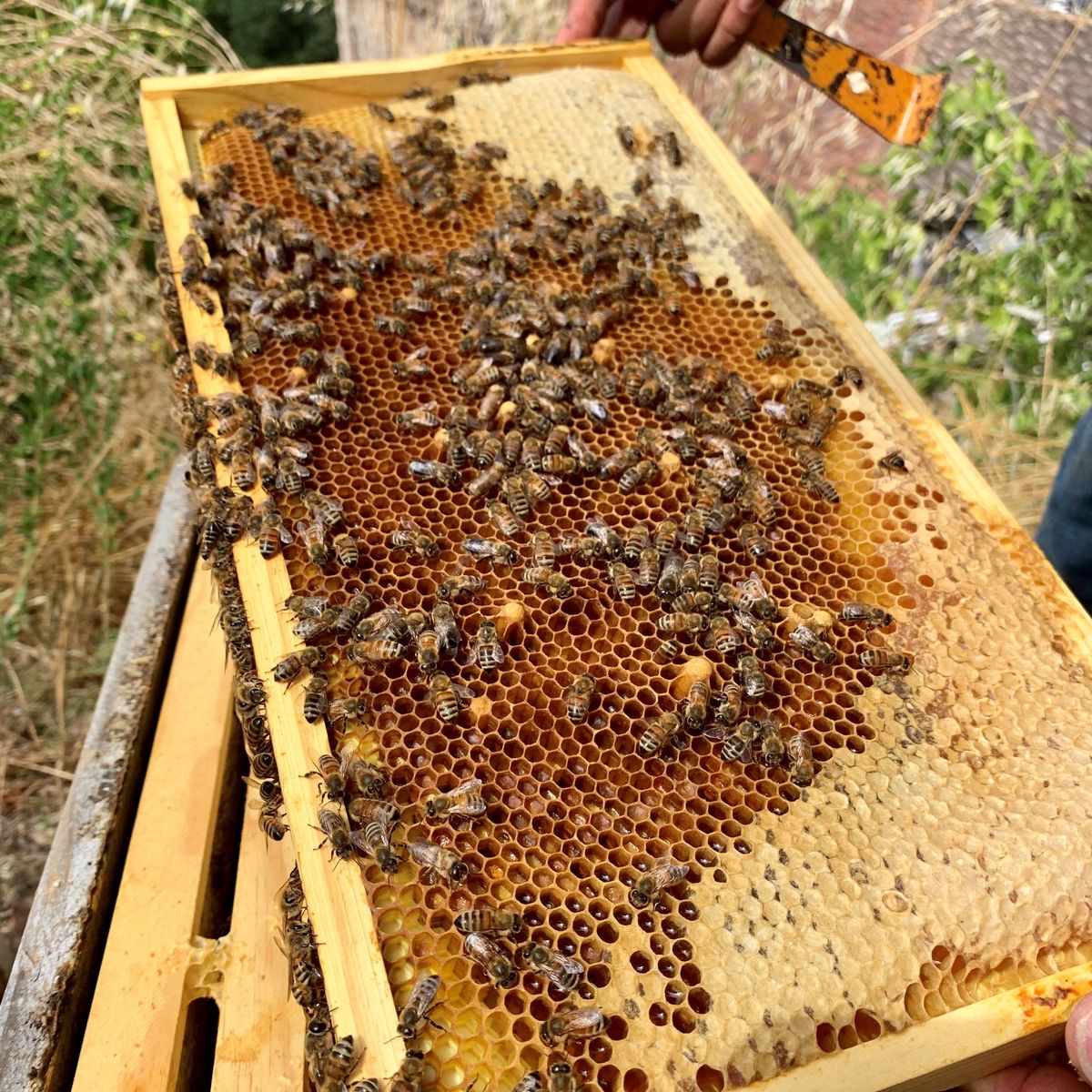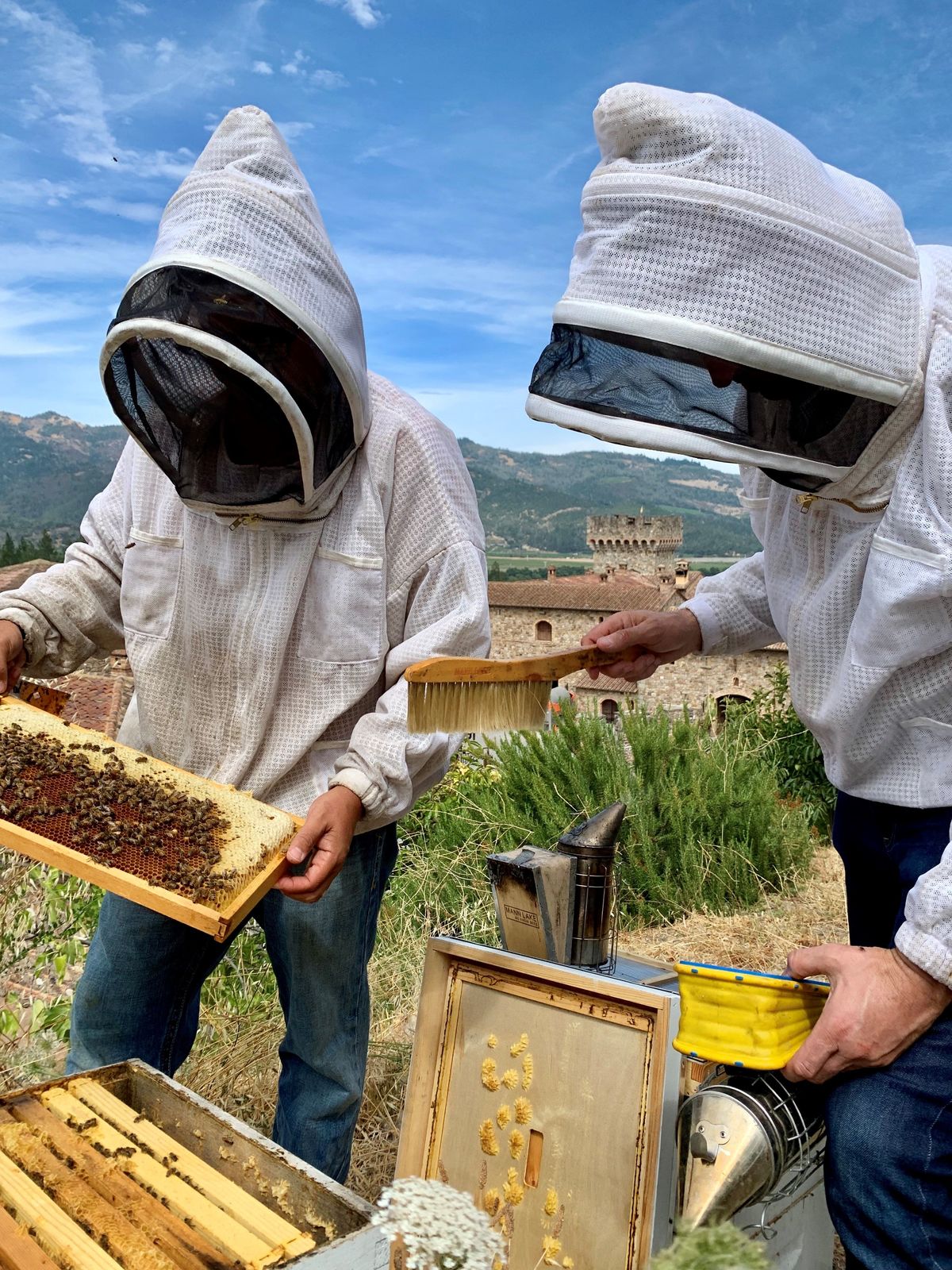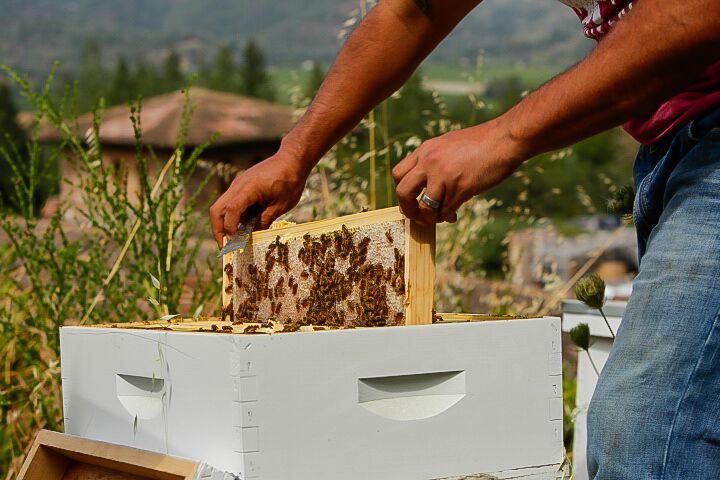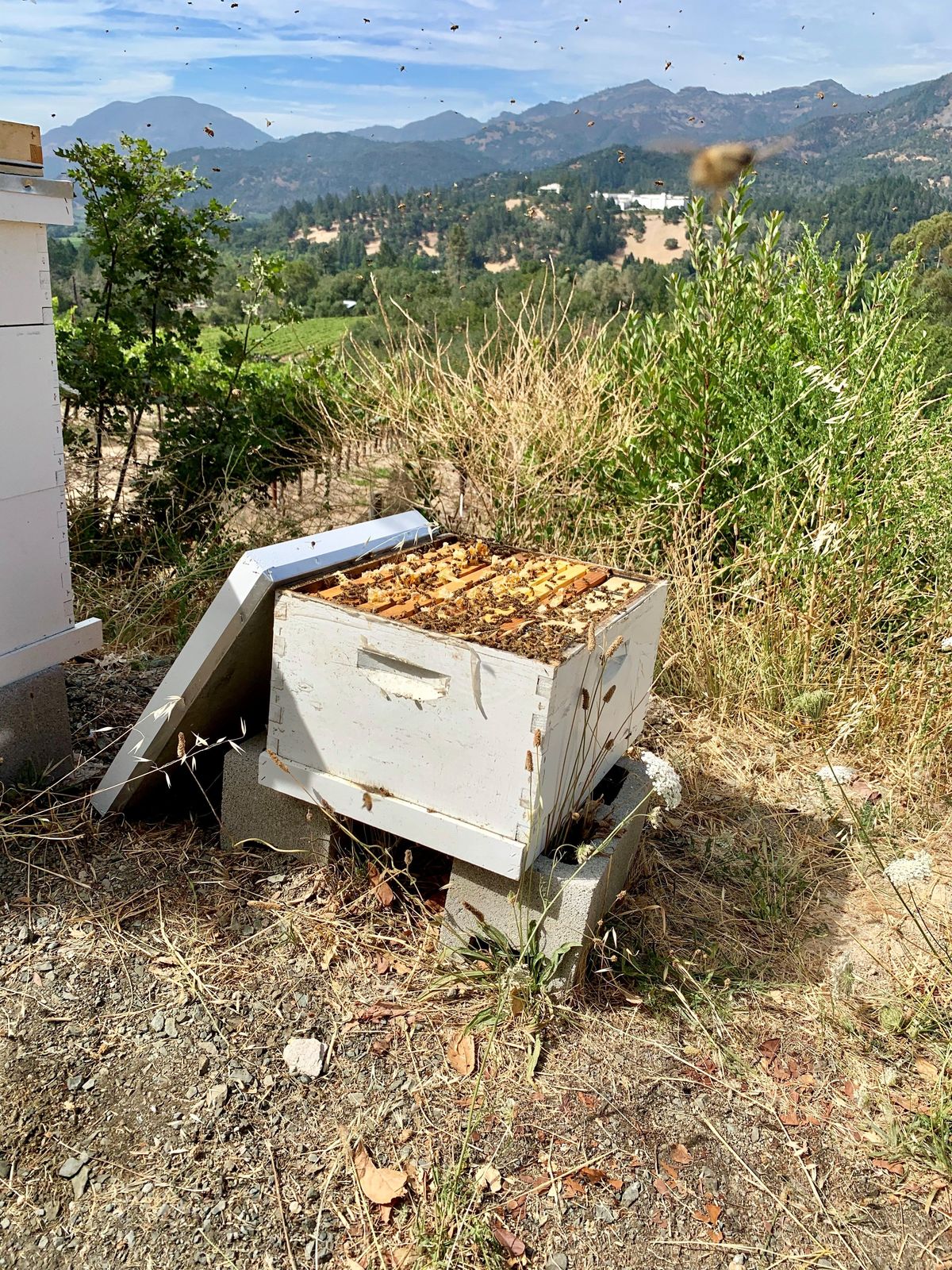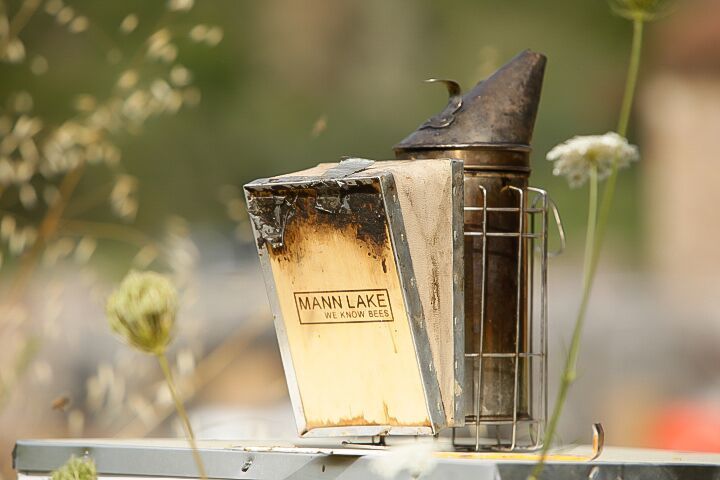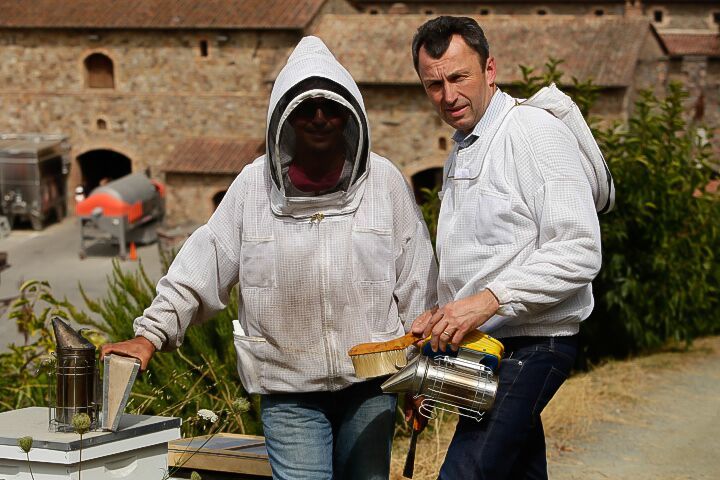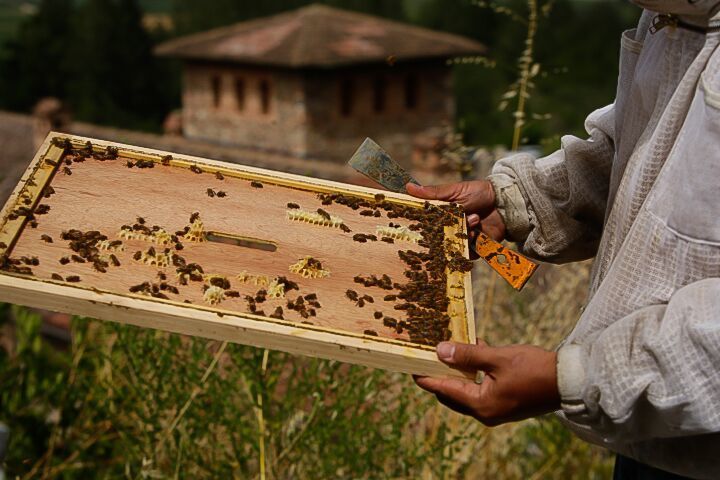
Carla Venezia
Honey Harvest: Helping the Bee Population
Dario and Georg are always looking for ways to increase the Castello’s sustainability and self-sufficiency while making positive contributions to the environment. Using reclaimed water in our vineyards, creating compost from scraps and recycling every last piece of trash are just a few ways we practice sustainable agriculture while reducing our overall carbon footprint.
Two years ago Georg and Dario decided to look into raising bees. With environmental stresses resulting in dwindling bee populations worldwide, they felt it was doubly important for us to do whatever possible to help sustain the local bee population.
They met with professional beekeepers Shadow and Rana—owners of The Queens Apiary, a local beekeeping service here in the Napa Valley—who agreed to help us raise our own bees here at the Castello!
Shadow and Rana developed their passion for beekeeping while researching treatment for their son’s severe allergies to local pollens. Providing local honey to their son was so effective in reducing his allergies that soon beekeeping became their life! Now their passion is one of our passions, too!
Although bees don’t pollinate the grape vines (and aren’t needed for that as the vines are somewhat self-pollinating), they’re nonetheless an important part of maintaining healthy vineyards, local vegetation and nutrient-rich soil while contributing to our grapes and boosting the local bee population.
In the vineyards, the presence of bees attracts beneficial insects which help to keep vineyard pests at bay. Lady bugs and similar insects act as natural pesticides against the destructive insects, eliminating the need for dangerous chemicals! What could be better?!
Our bees pollinate the herbs and vegetables as well as our numerous fruit trees—fig, peach, pear, plum and apple—growing in our Castello gardens. In addition, the bees help us to maintain our lush grasses; they pollinate the myriad of wildflowers and berries which grow in abundance in the land surrounding the vineyards, returning rich nutrients to the soil and ultimately, to our vines and grapes.
After harvest, the bees “celebrate” with us by feasting on any grapes and juice remaining in the vineyards (which also contributes to their flavorful honey!), their reward for doing so much for us throughout the year!
The honey produced by our bees is considered to be a “hyper local” estate “wildflower” honey, since the bees collect pollen from within 2-3 miles of the Castello where so many beautiful wildflowers grow, year-round. Our honey has a lovely golden amber hue and is extraordinarily flavorful, with notes of rosemary, lavender and blackberry. We happen to think it’s perfect and believe you will, too!
Castello di Amorosa honey will be available soon in our tasting room–be sure to look for it next time you visit the Castello!
